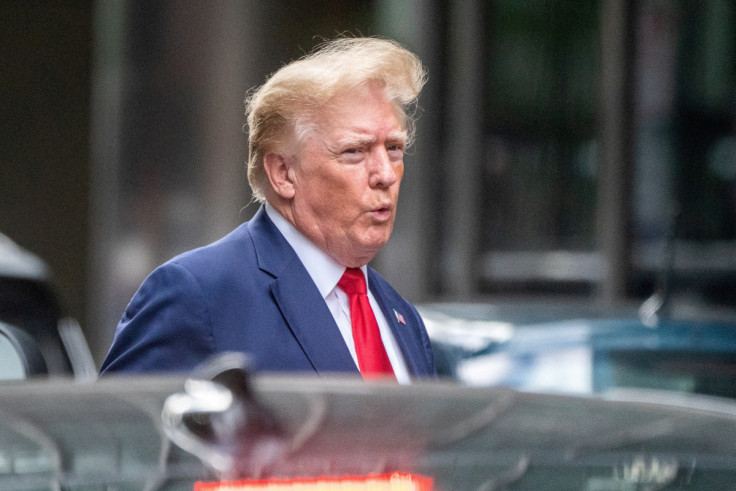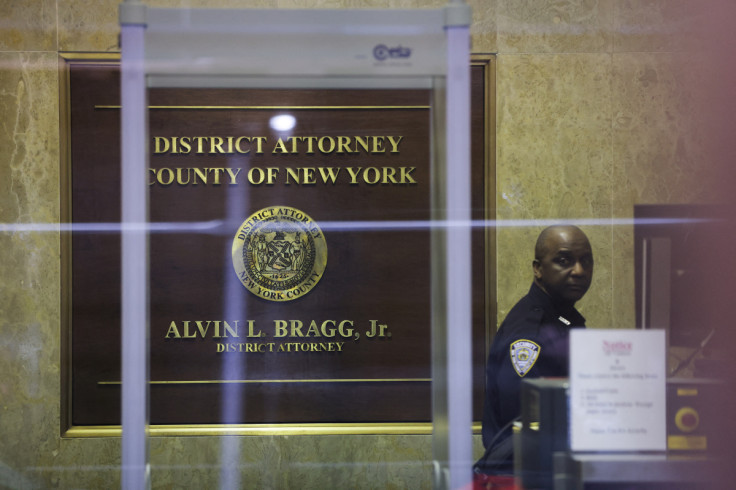Trump Indictment: Ex-Potus Will Have Fingerprints, Mugshot Taken; Read Miranda Rights If Arrested

KEY POINTS
- Donald Trump's surrender to law enforcement could take several days
- Trump would have his first court appearance for the arraignment of his case
- The possibility of Trump being handcuffed is still unclear
The entire country is holding its breath on whether the Manhattan District Attorney's Office will move to indict a former president for the first time in U.S. history.
Former President Donald Trump set off the high legal drama when he posted on his Truth Social account that he would be likely arrested on Tuesday, preempting a formal announcement from the Manhattan prosecutors.
Trump called on his supporters to protest against his looming indictment.
Trump's possible indictment is related to the investigation into his alleged role in paying $130,000 worth of hush money to adult film actress Stormy Daniels in exchange for her silence.
As of press time, there is no confirmation that Manhattan District Attorney Alvin Bragg Jr. would move forward to indict Trump, who is currently running for a third time as president.
If the former president were slapped with an indictment by a grand jury, he would be required to surrender to law enforcement officers, or they would track him down with an arrest warrant.
However, Trump's surrender to the authorities may take several days after his indictment, as common practice for white-collar investigations dictates that prosecutors could negotiate with the defendant's lawyers about surrendering, according to the New York Times.
If Trump finally surrendered to the authorities, he would be read the Miranda warning, wherein law enforcement officers would tell him about his right to remain silent and the right to an attorney.
The next step for Trump is to go to the district attorney's office or an open court.
The former president would be processed, including taking his fingerprints and mugshots.
Trump would also have his first court appearance to hear from the judge about the charges filed against him in the indictment.
However, whether Trump would get handcuffed is still unclear, which is standard for individuals arrested on felony charges. If the authorities deemed the former president less likely to pose a danger, his hands might be placed on the front just like some white-collar defendants.
Throughout the indictment process, Trump could be accompanied by the Secret Service, whose job is to protect the former commander-in-chief. The court officers of New York would also provide Trump with security inside the courthouse.
David Weinstein, a former federal and state prosecutor, told USA Today that charges can be dropped after an indictment.
The Manhattan district attorney could decide whether to dismiss Trump's charges. At the same time, the judge could enter a motion to dismiss the former president's case based on legal grounds or due to legal issues surrounding the case.
New York City is also bracing for the impact of Trump's possible indictment.
Mayor Eric Adams said authorities are on alert for possible inappropriate actions following Trump's move to galvanize his supporters.
"We are monitoring comments on social media, the NYPD is doing their normal role of making sure that there are no inappropriate actions in the city," Adams said, ABC7 New York reported.
The city could mobilize the Borough Command, the Strategic Response Group, Emergency Service Unit and the K-9 units to respond to untoward incidents.

© Copyright IBTimes 2024. All rights reserved.






















